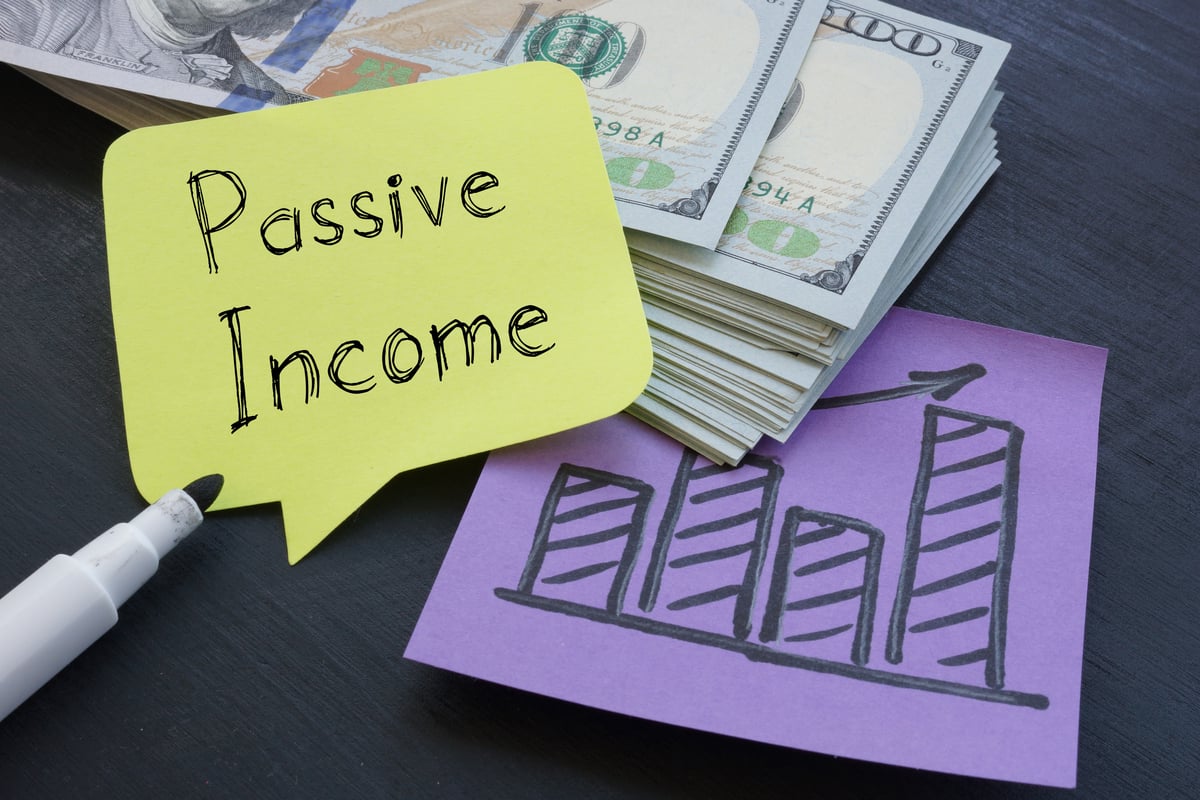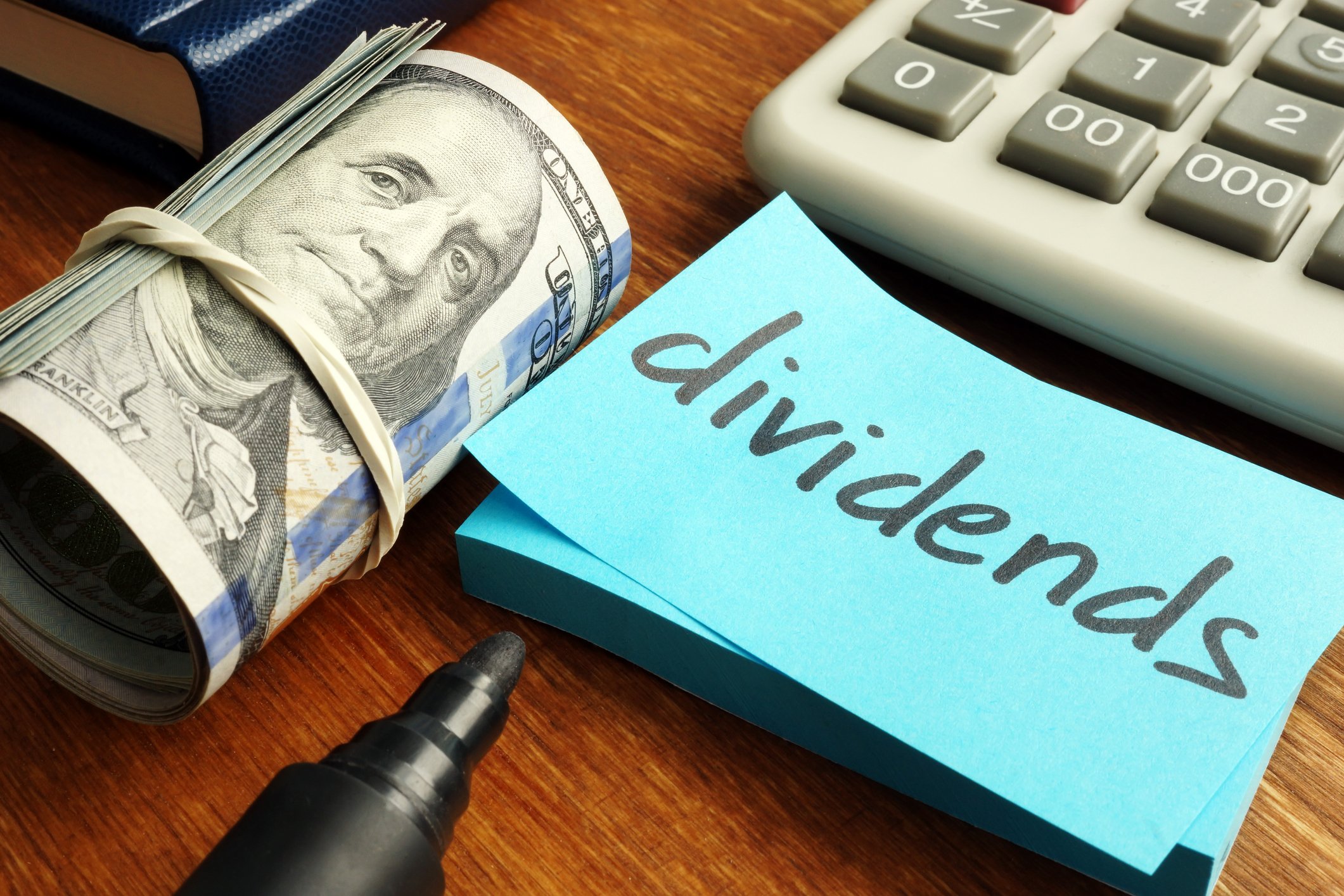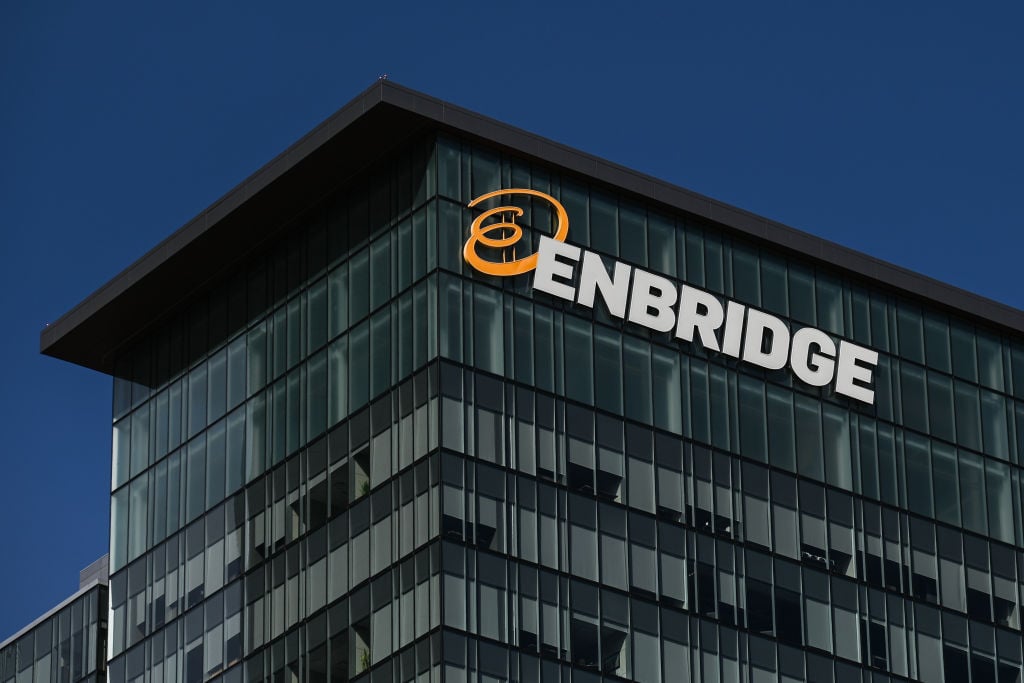Canadian energy infrastructure giant Enbridge believes it is a "must-own" investment. That's because it's a financially strong company with a premier asset base backed by a low-risk business model and visible growth prospects. That combo should drive superior returns over the long term.
It's hard to argue with the company because, in many ways, it's the total package for investors. It offers them a compelling blend of high-yield dividend income with clear line of sight on future growth, all for an inexpensive price, which is getting harder to find in today's roaring stock market. Those factors combine to make Enbridge a great stock to buy, in my opinion.

Image source: Getty Images.
An excellent income stream
With a dividend yield of 4.8%, Enbridge is certainly attractive to income seekers. However, what's even more important than the size of its dividend is the security of that income stream. As the following chart of large energy infrastructure companies shows, Enbridge's financial metrics are at the higher end of its peer group.
|
Company |
Credit Rating |
Debt to Adjusted EBITDA |
Dividend Coverage Ratio |
% of Cash Flow Fee-Based or Regulated |
|---|---|---|---|---|
|
Enbridge (ENB +0.27%) |
BBB+/BBB/Baa2 |
5.5 times |
1.6 times |
96% |
|
Kinder Morgan (KMI +0.83%) |
BBB-/Baa3 |
5.2 times |
4.0 times |
91% |
|
TransCanada (TRP +2.49%) |
A |
5.8 times |
1.6 times |
95% |
|
ONEOK (OKE +0.31%) |
BBB/Baa3 |
4.7 times |
1.2 times |
90% |
|
Targa Resources (TRGP +1.31%) |
BB-/Ba2 |
3.8 times |
1.05 times |
70% |
|
Williams Companies (WMB +1.85%) |
BB+/Ba2 |
5.25 times |
1.4 times |
97% |
Data source: Enbridge, Kinder Morgan, TransCanada, ONEOK, Targa Resources, and Williams Companies.
One of the most impressive numbers is that the company currently gets 96% of its income from predictable sources. While that's a shade less than Williams Companies, Enbridge's cash flow is far less volatile than that of Targa Resources. That gives investors more confidence that Enbridge can generate the cash needed to support its lucrative payout, while Targa's appears to be hanging by a thread. Meanwhile, Enbridge has one of the highest dividend coverage ratios in the group, which means it can comfortably pay investors while retaining significant excess cash flow to help finance growth projects. About the only area of concern is the leverage ratio. However, the company recently announced that it had identified 10 billion Canadian dollars ($7.8 billion) of noncore assets that it could sell in the next few years, including CA$3 billion ($2.3 billion) earmarked for sale next year. Those asset sales, when combined with the incremental income from soon-to-be-completed growth projects, should push leverage below 5.0 times by the end of 2018 and toward 4.5 times by 2020.
Excellent growth prospects
Furthermore, those asset sales, when added to the company's retained cash flow, will help it finance the CA$22 billion ($17 billion) of growth projects it still needs to finish funding through 2020. Those expansions should grow cash flow per share by a 10% compound annual rate through 2020, supporting dividend growth at that same pace.
That's in line with most rivals. TransCanada, for example, recently reaffirmed its intention to raise its payout by 10% per year through 2020. Williams also anticipates 10% to 15% dividend growth over the next few years while ONEOK expects to boost its payout 9% to 11% per year through 2021. The only outlier is Kinder Morgan, which plans to deliver 36% annual dividend growth through 2020. However, that's a bit deceiving since the primary fuel of the U.S. pipeline giant's growth is a decision to pay out a higher percentage of its cash flow going forward.

Image source: Getty Images.
A nearly unbeatable price
Despite metrics that are as good, if not better, than rivals, Enbridge's stock is quite a bargain compared to most peers. With shares recently trading in the high $30s, the Canadian pipeline giant only fetches about 11.5 times next year's cash flow. While that's not as cheap as Kinder Morgan's insanely low valuation of 8.6 times cash flow, it is well below the peer group average of 14.9 times. As a result, Enbridge could significantly outperform most rivals in the coming years as its valuation reverts closer to its peer group average and it continues to deliver a growing income stream to investors.
What's not to like
Enbridge operates an irreplaceable portfolio of energy infrastructure assets that generate steady cash flow that the company then uses to pay investors a lucrative dividend and invest in growth projects. This low-risk income growth is why the company feels strongly that it's a must-own investment. That said, what makes it "must buy" right now is that investors can get this premium business for a bargain price.











